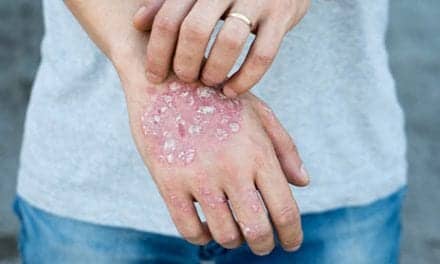If you suffer from acne, you know how annoying it is when someone close to you has flawless skin — for absolutely no reason. They don’t double cleanse their face every night, they don’t layer on an arsenal of serums and potions, and some of the worst offenders go so far as to claim that they just use bar soap. Their clear skin is largely a genetic gift — but that doesn’t mean the oily skin the universe gave you is a curse.In fact, it might actually be more ideal in the long run, as actresses like Gabrielle Union know full well. She now credits her glowing complexion to her oiliness, calling it both “a blessing and a curse.” A curse because it wreaked havoc on her as a pimply hormonal teenager. But a blessing because, at 44, Union’s skin is pretty much wrinkle-free.The idea is that all those extra skin oils, which help create those lovely pus-filled bumps now, actually end up delaying the appearance of fine lines and wrinkles later. And dermatologists and recent studies back up that claim.Dermatologist Elizabeth Tanzi, MD, tells us that there’s mounting dermatological evidence that dry skin wrinkles faster than oily skin. “If the skin is excessively dry from lack of skin sebum, that can accelerate the aging process,” she explains. Tanzi adds that she tells patients with oily skin that they should be comforted with the knowledge that oily skin usually ages better than very dry skin.Dermatologist Ted Lain, MD, agrees with Tanzi’s explanation, and adds that it also comes down to skin thickness. “Increased sebaceous gland activity (the cause for oily skin) is usually associated with a thicker dermis, the second layer of the skin,” he says. “The ingredients for healthy, youthful skin all reside in the dermis, including collagen, hyaluronic acid, and elastic fibers.” In other words, a thicker outer skin layer can actually delay the formation of lines better than any serum could.And, according to The Journal Of Investigative Dermatology, it goes one step further than that. In a research study with twins, scientists found that acne sufferers tended to have longer telomeres (a protective nucleotide that keeps cells from dying) which ultimately leads to delayed aging as well. Score.What’s more, those who suffered from acne in their teens typically tend to be more disciplined in their skin-care routines, long after the zits and pimple are gone and right around the time that a preventative plan might start. So the next time you have to suffer from someone explaining their non-existent cleansing regimen to you, rest easy knowing you’ll have the last laugh.




